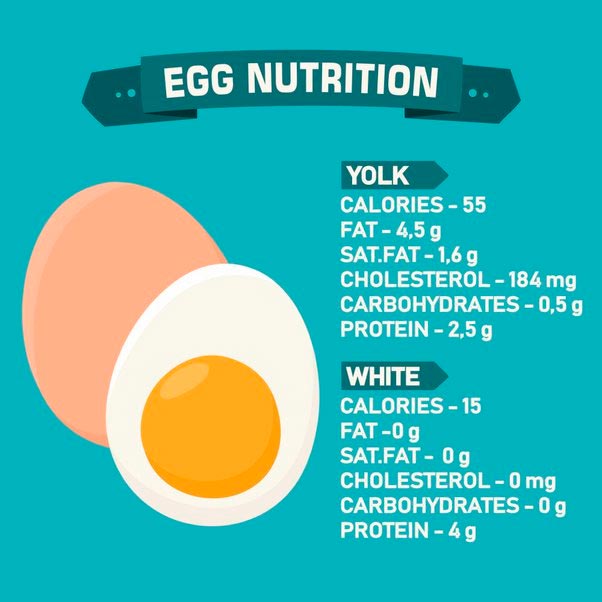Eggs are a versatile and nutritious food that is a staple in many cultures around the world. They are an excellent source of protein, vitamins, and essential minerals for the human body.
Table of Contents
Eggs are one of the most popular and versatile foods in the world. They are used in a wide variety of dishes and are a great source of protein. Many people are concerned about the number of calories in eggs, especially when trying to maintain a healthy diet. In this article, we will explore the number of calories in 2 eggs and how they can fit into a healthy diet.
Two large eggs contain approximately 140-150 calories, depending on how they are prepared. This makes them a relatively low-calorie food that can be incorporated into a healthy diet. However, it is important to note that the number of calories can increase significantly if the eggs are cooked with added fat or served with high-calorie toppings.
Despite their low calorie count, eggs are a nutrient-dense food that contains a variety of vitamins and minerals. They are a good source of protein, vitamin D, and choline, which is important for brain health. Additionally, eggs have been shown to help with weight loss and can keep you feeling fuller for longer periods of time.
Overall, two eggs can be a healthy and satisfying addition to any meal plan.
Understanding Calories
Calories are a unit of measurement of energy. They are the amount of energy that is needed to raise the temperature of one gram of water by one degree Celsius. Calories are used to measure the amount of energy that is in the food we eat.
When it comes to weight management, calories are an important factor to consider. Consuming more calories than your body needs can lead to weight gain, while consuming fewer calories than your body needs can lead to weight loss.
The number of calories in a food is determined by the amount of carbohydrates, fats, and proteins it contains. Carbohydrates and proteins have 4 calories per gram, while fats have 9 calories per gram. This means that foods that are high in fat are generally higher in calories than foods that are high in carbohydrates or proteins.
It is important to note that not all calories are created equal. The source of the calories matters, as some foods provide more nutrients than others. For example, a 100-calorie apple provides more nutrients than a 100-calorie candy bar.
Understanding calories can help individuals make informed decisions about the foods they eat and can aid in weight management. By being aware of the amount of calories in the foods they consume, individuals can make healthier choices and maintain a balanced diet.
Nutritional Value of 2 Eggs
Eggs are a popular food item that can be eaten in a variety of ways. They are a good source of protein, vitamins, and minerals. 2 eggs can provide a significant amount of nutrients that are beneficial for the body.
| Nutritional Component | Quantity in 2 Eggs |
|---|---|
| Calories | 144 kcal |
| Protein | 12 g |
| Total Fat | 10 g |
| - Saturated Fat | 3 g |
| - Trans Fat | 0 g |
| - Monounsaturated Fat | 4 g |
| - Polyunsaturated Fat | 2 g |
| Cholesterol | 370 mg |
| Carbohydrates | 1 g |
| Dietary Fiber | 0 g |
| Sugars | 0 g |
| Vitamin A | 280 mcg (31% DV) |
| Vitamin D | 46 IU (8% DV) |
| Vitamin B12 | 1.28 mcg (53% DV) |
| Folate | 46 mcg (12% DV) |
| Iron | 2 mg (11% DV) |
| Zinc | 2 mg (22% DV) |
| Choline | 270 mg |
| Lutein and Zeaxanthin | 283 mcg |
Note: Percent Daily Values (% DV) are based on a 2000 calorie diet, which may vary depending on individual needs.
Calories
Two large eggs contain approximately 140-160 calories. The exact number of calories may vary depending on the size of the eggs. The majority of the calories come from the egg yolk, which contains fat and cholesterol.
Protein
Protein is an essential nutrient that is necessary for the growth and repair of tissues in the body. Two large eggs contain approximately 12 grams of protein. The protein in eggs is considered to be a high-quality protein, which means that it contains all of the essential amino acids that the body needs.
Vitamins and Minerals
Eggs are a good source of several vitamins and minerals that are important for the body. Two large eggs contain the following:
- Vitamin A: 10% of the daily recommended intake
- Vitamin B2 (Riboflavin): 25% of the daily recommended intake
- Vitamin B12: 33% of the daily recommended intake
- Vitamin D: 20% of the daily recommended intake
- Selenium: 32% of the daily recommended intake
Eggs also contain smaller amounts of other vitamins and minerals, such as vitamin E, vitamin K, calcium, and iron.
Cholesterol
Eggs have been criticized for their cholesterol content. However, recent studies have shown that dietary cholesterol has less of an impact on blood cholesterol levels than previously thought. It is still recommended that individuals with high cholesterol or heart disease limit their intake of eggs and other high-cholesterol foods.
Overall, two eggs can provide a significant amount of nutrients that are beneficial for the body. They are a convenient and versatile food item that can be incorporated into a healthy diet.

Breakdown of Calories in 2 Eggs
Protein
Eggs are a great source of protein, and 2 large eggs contain approximately 12 grams of protein. Protein is essential for building and repairing tissues in the body, and it also helps to keep you feeling full and satisfied after a meal.
Fat
Eggs are also a source of fat, with 2 large eggs containing approximately 10 grams of fat. The majority of the fat in eggs is unsaturated, which is considered to be a healthier type of fat. However, eggs do contain some saturated fat, so it's important to consume them in moderation as part of a balanced diet.
Carbohydrates
Eggs are a low-carbohydrate food, with 2 large eggs containing less than 1 gram of carbs. This makes eggs a great choice for people who are following a low-carb or ketogenic diet.
In summary, 2 large eggs contain approximately 140 calories, with 12 grams of protein, 10 grams of fat, and less than 1 gram of carbohydrates. Eggs are a nutritious and versatile food that can be enjoyed in a variety of ways, including scrambled, boiled, or as an ingredient in baked goods.
Factors Influencing Caloric Content
Cooking Method
The cooking method of eggs can significantly affect their caloric content. For example, a boiled egg contains fewer calories than a fried egg due to the added oil or butter used in frying. Scrambled eggs cooked with milk or cheese will also have more calories than plain scrambled eggs.
Size of the Egg
The size of the egg can also impact its caloric content. A large egg contains more calories than a small or medium-sized egg. A large egg typically contains around 72 calories, while a medium-sized egg contains around 63 calories. Therefore, it is essential to consider the size of the egg when calculating its caloric content.
Type of Egg
The type of egg can also affect its caloric content. For example, a duck egg contains more calories than a chicken egg due to its larger size. Additionally, organic and free-range eggs may have a slightly different caloric content than conventionally raised eggs due to differences in the chickens' diet and exercise.
Overall, it is essential to consider these factors when calculating the caloric content of eggs. By understanding these factors, individuals can make informed decisions about their egg consumption and ensure they are meeting their dietary needs.
| Egg Size | Calories |
|---|---|
| Small | 54 |
| Medium | 63 |
| Large | 72 |
Note: Caloric content may vary slightly depending on the specific brand and type of egg.
Health Benefits

Eggs are a highly nutritious food that can provide a range of health benefits. Here are a few reasons why eggs should be included in a balanced diet:
1. Protein
Eggs are an excellent source of high-quality protein. In fact, they contain all of the essential amino acids that the body needs to build and repair tissues. This makes them an ideal food for people who are trying to build muscle or recover from an injury.
2. Vitamins and Minerals
Eggs are also rich in vitamins and minerals that are essential for good health. For example, they are a good source of vitamin D, which is important for bone health, as well as vitamin B12, which is necessary for the production of red blood cells. They also contain minerals such as iron, zinc, and selenium, which are important for a healthy immune system.
3. Choline
Eggs are one of the best dietary sources of choline, a nutrient that is essential for brain health. Choline is important for the production of neurotransmitters, which are chemicals that transmit signals in the brain. It is also important for the development of the fetal brain during pregnancy.
4. Weight Loss
Eggs can also be a useful food for people who are trying to lose weight. They are low in calories but high in protein, which can help to keep you feeling full for longer. This can make it easier to stick to a calorie-controlled diet and lose weight.
Overall, eggs are a highly nutritious food that can provide a range of health benefits. They are an excellent source of protein, vitamins, and minerals, and can be a useful addition to a balanced diet.
Potential Risks of Excessive Egg Consumption
Eggs are a nutritious and affordable food that can be part of a healthy diet. However, consuming too many eggs may have some potential risks.
High Cholesterol
Egg yolks contain high amounts of cholesterol, which can contribute to high blood cholesterol levels in some people. High blood cholesterol levels are a risk factor for heart disease. While dietary cholesterol may not affect blood cholesterol levels in everyone, it is recommended that people with high blood cholesterol levels limit their intake of cholesterol-containing foods, including egg yolks.
Foodborne Illness
Raw or undercooked eggs can be contaminated with Salmonella bacteria, which can cause foodborne illness. Symptoms of Salmonella infection include diarrhea, abdominal cramps, and fever. People with weakened immune systems, young children, and older adults are at higher risk of developing severe illness from Salmonella infection. To reduce the risk of foodborne illness, it is recommended to cook eggs thoroughly and to avoid consuming raw or undercooked eggs.
Allergic Reactions
Eggs are a common food allergen, and some people may experience allergic reactions after consuming eggs. Symptoms of egg allergy may include hives, swelling, and difficulty breathing. People with egg allergies should avoid consuming eggs or products that contain eggs.
Interference with Medications
Eggs contain a protein called avidin, which can interfere with the absorption of biotin, a vitamin that is important for healthy skin, hair, and nails. However, this is only a concern if someone is consuming large amounts of raw egg whites on a regular basis. Additionally, some medications may interact with eggs, so it is important to talk to a healthcare provider about any potential interactions.
Conclusion
In conclusion, eggs are a great source of protein and other essential nutrients. They are low in calories and can be a healthy addition to a balanced diet. However, it is important to be mindful of portion sizes and cooking methods to avoid excessive calorie intake.
Based on the nutritional information provided, it is clear that a single large egg contains approximately 72 calories. Therefore, two large eggs would contain approximately 144 calories. It is important to note that this calorie count may vary depending on the cooking method and any additional ingredients used.
For those looking to reduce their calorie intake, opting for egg whites or egg substitutes may be a suitable alternative. These options typically contain fewer calories and less fat than whole eggs.
Overall, eggs can be a nutritious and satisfying addition to any meal plan when consumed in moderation.
Eat well, live better!




